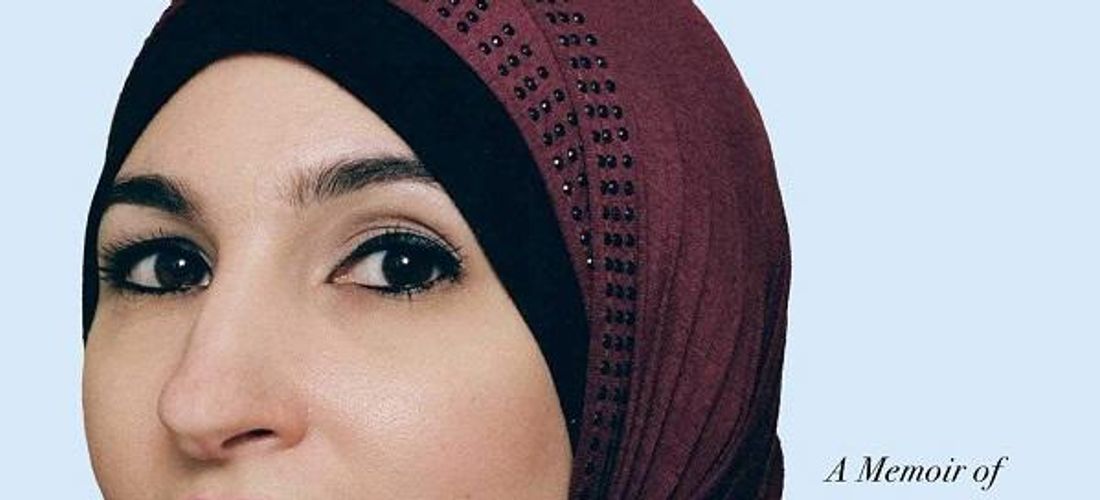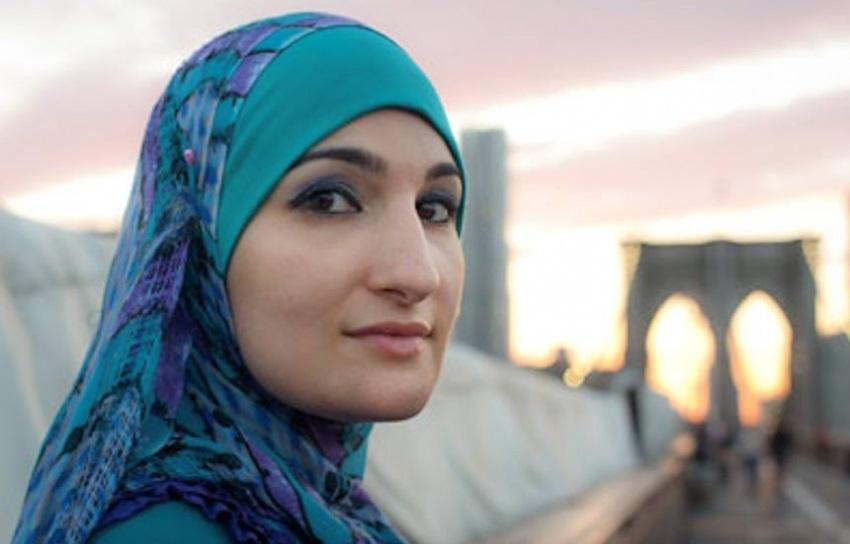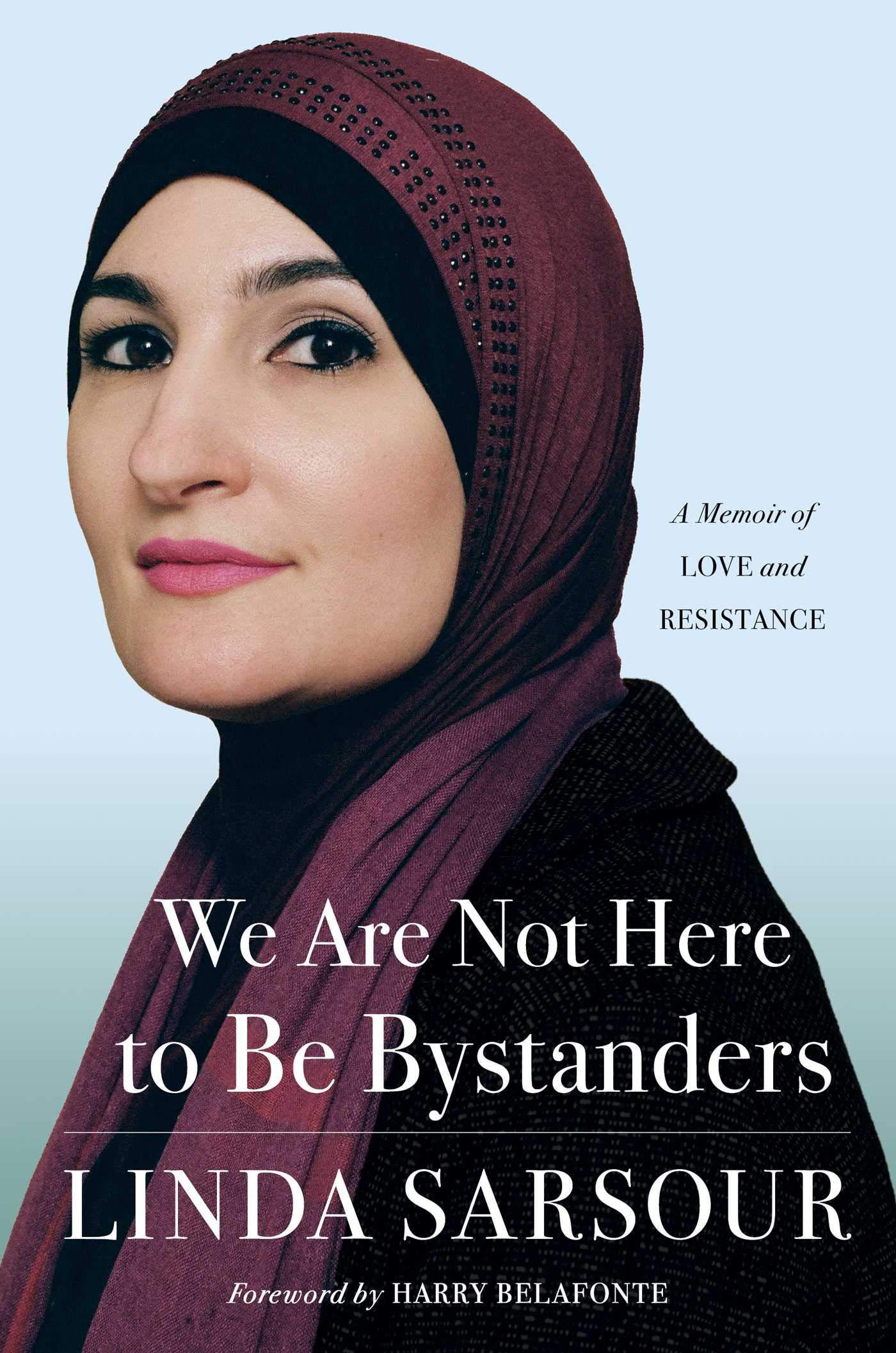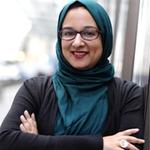How We All Need to Help Redeem the Soul of America – Our Exclusive with Linda Sarsour
Lifestyle
|
Apr 6, 2020
|
6 MIN READ

What words come to mind when you think about Linda Sarsour? For me it's activism, community building, fierceness, Palestinian, American, dedication and unapologetically Muslim. The Brooklyn native and one of the co-founders of the Women's March has worked her whole life by the mantra that is the title of her new memoir – "We are Not Here to be Bystanders."
What does that mean? According to Linda, it means we all have to play our part, in whatever way possible, to challenge injustice. She explores this deeply as she tells the story of her activism and personal family life, how the two intertwine and pull at her heart – something she rarely talks about in a public capacity.
I spoke with Linda about what feeds her activism, how her hijab has been key to her visibility as an unapologetic Muslim and why we all have a part to play in redeeming the soul of America.

Linda Sarsour; image source: Twitter
One of the main messages of your book, encapsulated in the title of your memoir, is that we are not here to be bystanders. What do you mean by that?
“We Are Not Here To Be Bystanders” is the mantra by which I live. I believe wholeheartedly that we are not on this earth to sit back idly in the face of injustice, but to in fact challenge injustice in every facet of our lives and society. This could be as simple as donating a small amount of money to help feed a poor family, or stepping in to defend a Muslim woman in hijab from harassment or adding our voice to a petition or protest to demand change in policy to help alleviate some harm or bring equity in a community.
How can the everyday person in their home rise up to this? To invest in their community and not be bystanders?
Each and every one one of us can make the decision not to be a bystander. I know that not everyone is or can be a full time activist and organizer, and that is okay. But we can each contribute something. That can be in the form of teaching our own children important histories of global movements for human rights, introducing them to key figures like Ella Baker, Rosa Parks, Ida B. Wells, Malcolm X, Muhammad Ali, Dr. Martin Luther King, Jr., Dolores Huerta and Grace Lee Boggs.
We can choose local organizations on the front lines of economic justice, racial justice, gender justice or combating poverty and become a monthly sustaining donor. We can show up to a rally/protest in support of an issue we care deeply about. We can post articles and help educate our friends and families about issues that move us and need more supporters.
In sharing your story, your book challenges all the stereotypes Muslim women face. What stereotype do you battle the most, and how do you tear it down?
As a Muslim American woman, I feel stuck between two extremes – one extreme where people believe Muslim women are silent and subservient and that I am some sort of anomaly, and another extreme that paints Muslim women and Muslims in general as violent, backwards and in contradiction to “Western values.” My approach is to move through this world UNAPOLOGETIC about who I am and the faith that I follow.
My declaration of being unapologetically Muslim American is not only for me, but an invitation to all Muslim women around the world. We have nothing to be ashamed of and only so much to be proud of. We tear down these stereotypes by being our whole selves and working towards our dreams and aspirations. We shall not ever let anyone define us – we will define ourselves and our worth.
Wearing hijab has had a profound impact on you. It made you visibly Muslim. How important has that been in your work?
Hijab is my cape. It is a core and central part of my identity. It gives me courage and it allows me to introduce myself to the world even before I open my mouth. In a country like the United States where hate crimes against Muslims have increased, wearing the hijab is an act of courage. This visible symbol that I have chosen reminds me and those around me every day that I am unapologetically Muslim American.

Don’t mess with Brooklyn, you often say. How can we all develop some more Brooklyn in us to stand taller and stronger against Islamophobia and other forms of social injustice?
Brooklyn is a state of mind. To be Brooklyn is to be un-bought and unsold, to hold a deep pride that cannot be pierced; that you stand up and defend yourself and others. To summon your inner Brooklyn is to allow others to understand NOT to mess with you because you will not take injustice lying down.
You are calling on everyone who reads your book, who follows your story, to redeem the soul of America. What does that mean?
America was founded on a set of ideals that have not come to fruition, and it is all of our responsibility to work every day to redeem the soul of this nation. It means building a country that is just and equitable for ALL. It means holding those in power accountable to our communities and speaking truth to power. It means that our nation will only be as good, bold and brave as its people, who will no longer turn a blind eye to injustice.
There have been death threats, the most awful of online trolls and coordinated right-wing attacks against you. From where do you draw strength to keep fighting?
I wrote about this in my book. I believe fear is a choice – and so is freedom. I choose not to be afraid, not to be silenced and not to be intimidated. I draw strength from my faith and from our beloved Prophet Muhammad (saw), who endured far more than I can ever imagine and forged forward inspiring millions of people around the world to embrace Islam.
I draw strength from the history of the United States and civil rights leaders, who endured far more than I have experienced and risked their lives for the rights we have been afforded today. I am part of a long lineage of truth tellers and freedom fighters willing to put our lives on the line every day to demand the dignity and respect we all deserve.
You rarely talk about your family, but in your book you open up about the tough sacrifices you’ve all had to make. What was the hardest thing?
I have often asked God and my children [to forgive me] for any shortcomings. Everything I do is for them. I want them to live in a country that embraces them in all of their complexities. I want them to live in a country where they feel safe. The hardest thing has been being away from them, sometimes days at a time. Also, [what is so difficult is] their exposure to the hate I have received [from which] I am unable to shelter them. I love my children more than anything, and I hope they know that I would sacrifice everything for them.
We stand on the shoulders of giants, in whatever work we do. Whose shoulders do you stand on and why?
I stand on the shoulders of many: My Palestinian immigrant parents who sacrificed everything so that I can be born here and be given the opportunities they knew I would not have living under a military occupation. Generations of Palestinians who have resisted so that I can carry their legacy and story forward. I stand on the shoulder of women like Sister Aisha Al-Adawiya, who for decades has been working to make space for women like me. I stand on the shoulders of the women of the civil rights movement, who paved the way so we can continue the fight for full liberation.
To the women (and men) who want to be like Linda Sarsour and follow in your footsteps, what three pieces of advice would you give?
1. BE UNAPOLOGETIC about who you are. You never know what small child is watching you who needs to draw courage and inspiration from you.
2. CHOOSE A CAUSE that means a lot to you: women’s reproductive rights, immigrant rights, alleviating poverty, criminal justice reform, a humanitarian crisis: Palestine, Syria, Uigyur Muslims in China, Rohingya Muslims, Somalia, etc. Become a sustaining donor to an organization that works on that issue; volunteer an hour or two a month if you are able.
3. SHOW UP. The very physical act of showing up in solidarity at a rally or meeting in support of a community or individual who has been impacted by injustice is deeply powerful and meaningful.
Subscribe to be the first to know about new product releases, styling ideas and more.
What products are you interested in?

